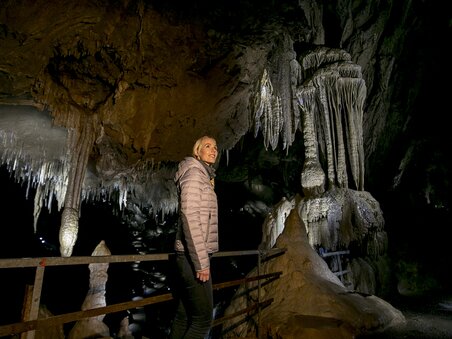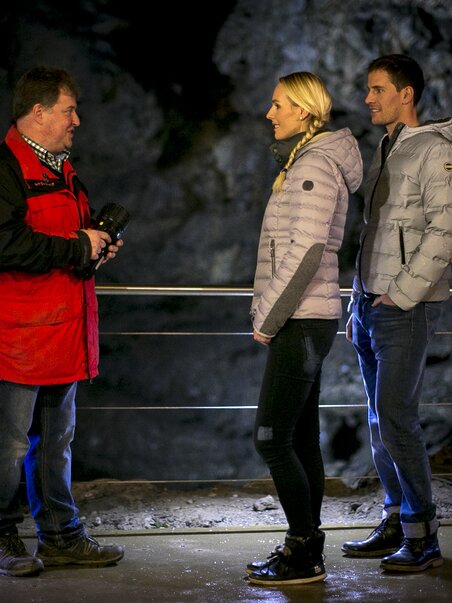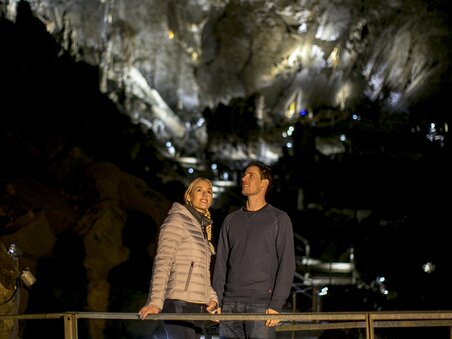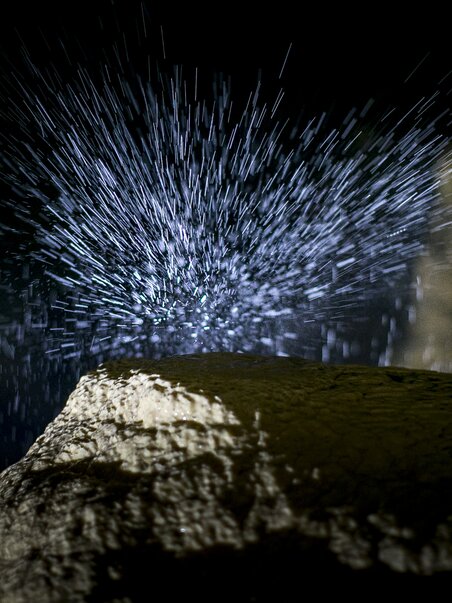- Family
- movement
- Nature
Lurgrotte Cave Semriach
Stalactite from the ceiling, stalagmite on the ground. This mnemonic can help you to identify the wonderful stone formations at the Lurgrotte, Austria’s largest dripstone cave.
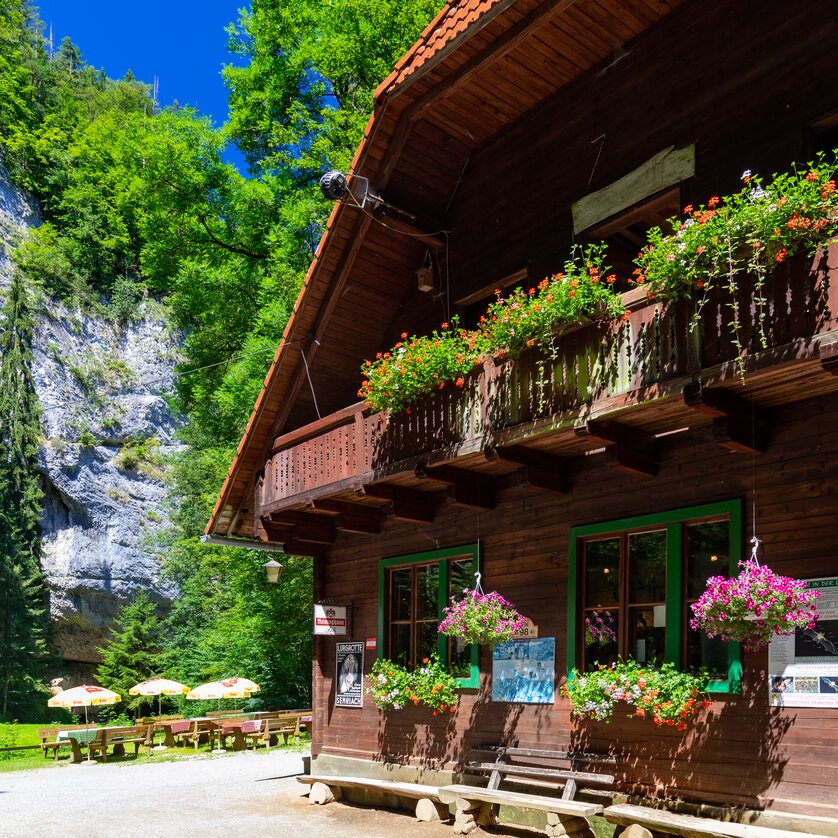
Details
Stalactite from the ceiling, stalagmite on the ground. This mnemonic can help you to identify the wonderful stone formations at the Lurgrotte, Austria’s largest dripstone cave. Here calcium mineral deposition over millions of years has yielded enchanting natural artworks both fragile and massive, with fantastic names meaning prince, giant and grand candle stick. You can explore this fascinating cavern complex accompanied by an expert guide, starting from either Peggau or Semriach.
The first person daring to enter the depths of Lurgrotte was the Italian cave scientist Max Brunello. In 1894 he discovered the Great Dome. This huge hall with an area of 120m by 80m and a height of 40m is among the biggest of its kind in central Europe and can be reached from the Semriach entrance. During guided tours a special atmosphere is created in the chamber by dramatic sound and lighting effects. Along the approximately 2km trail accessible from Semriach you can marvel, for example, at the forty-ton "giant" being probably the thickest hanging stalactite in the world. Peggau is situated where the Lurbach stream, whose exact course through the mountain is still unknown, comes to the surface again. From there you can reach the impressively illuminated "rain grotto" and the imposing "prince". Archaeological finds have proved that cave bears and, about 50,000 years ago, even Neandertals found shelter in the outer parts of Lurgrotte. It remains unknown, if they, like today's visitors, appreciated the constant temperature of +10°C and the high humidity of 97-98% beneficial for the respiratory system.
Those seeking a thrilling cave experience will find it in joining the adventurous guided winter tours which start at Peggau. You will explore the cave system, sometimes crawling, sometimes wading through waist-deep water, for about seven hours and will marvel at hidden elaborate dripstones and the shaping power of water. You will encounter some cave inhabitants that shun the light, such as the olm or the horseshoe bat, hibernating in the Lurgrotte.
By the way: Thunderstorms can make the water level in the cave rise from one minute to the next. Today there is a modern warning system. In the year 1894, however, seven experienced speleologists were trapped in the Lurgrotte by a surprise flood and could only be rescued after nine days. Another flood in 1975, destroyed the connection between the Peggau and the Semriach sections of the Lurgrotte and since then this passage can no longer be used.

